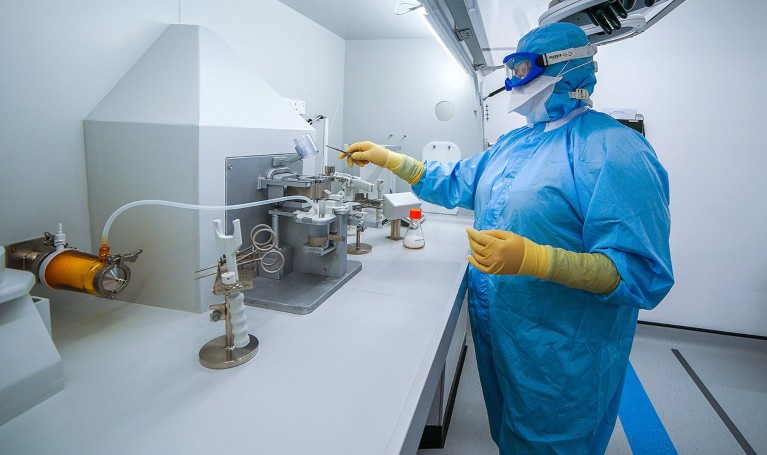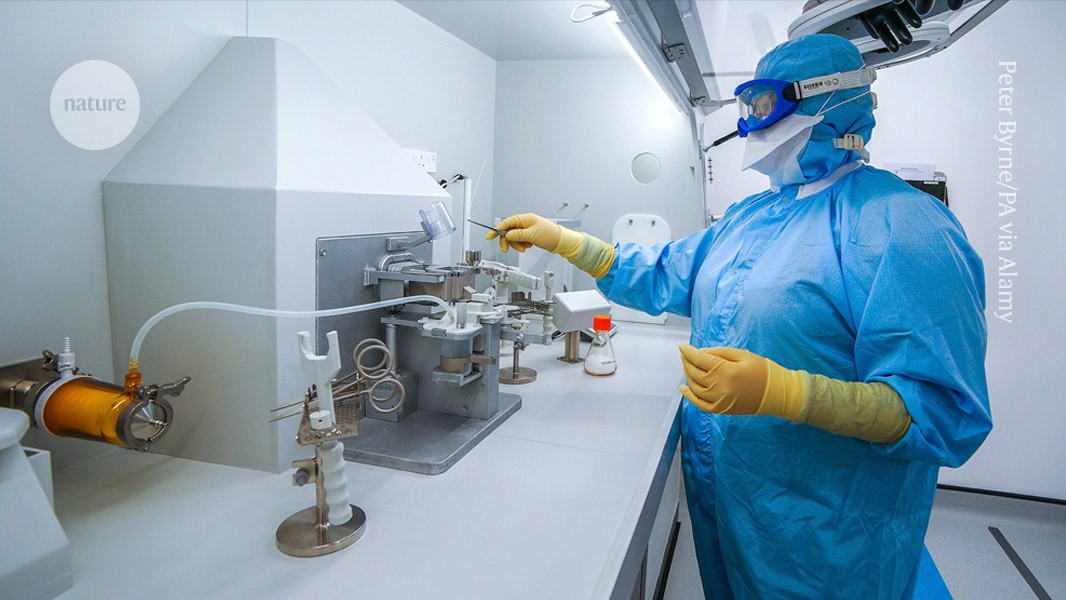
Inside a laboratory at AstraZeneca, which is currently Britain’s most valuable company. Credit: Peter Byrne/PA via Alamy
The UK government says it wants to make Britain one of the top three places in the world to create, invest in and scale-up a fast-growing technology business. Launching the country’s industrial strategy earlier this year, ministers set themselves an ambitious target: to produce a domestic trillion-dollar company by 2035.
Pharmaceutical giants pull out of UK: why it matters for global science
Last week, a report from a House of Lords committee poured cold water on the idea, arguing that the UK science-and-technology sector is, in fact, “bleeding to death”. The report warned that once a technology company reaches a certain level of success it’s likely to move to the United States. And with it would go the associated prosperity, including jobs and tax revenue.
So, can British science really produce a trillion-dollar technology company? And is such a goal even a good idea?
Not everybody thinks so. “It’s a really silly target,” says Giles Wilkes, a senior fellow at the Institute for Government think tank who was a special adviser on industrial and economic policy to Theresa May when she was prime minister. “But it absolutely bewitches politicians.”
It is possible, however, he adds. The chances of such a UK corporate giant emerging within 20 years are about one in four, he says. “You never know, there might be some version of an obesity drug or something that can do it.”
Size isn’t everything
Measured as market capitalization — the combined value of all traded shares — a trillion-dollar company would be almost four times the size of pharmaceutical giant AstraZeneca, Britain’s current biggest firm. Companies that reach the trillion-dollar mark often do so by exploiting a monopoly position in a large domestic market, Wilkes says.
“That’s of dubious use to the whole economy. Companies that have gone from half a trillion dollars to three or four trillion dollars have not generated widespread prosperity,” he says. “It’s not the same as economic growth.”
Andy Westwood, a public-policy researcher at the University of Manchester, UK, agrees. “It’s an odd way to express a strategic objective, because you could have a very successful industrial policy and not achieve that,” he says. But he thinks that more broadly, the government’s ten-year industrial strategy is good, and that having one is a good move for the United Kingdom. “The idea has gone in and out of fashion, not just in the UK but across lots of different countries.”
Give UK science the overhaul it urgently needs
The government hopes that the industrial strategy will put the pieces in place to encourage the growth of a mega-company. It focuses on ways to encourage innovative research, help academics to commercialize discoveries and to put in place the financial support to allow rapid expansion. As a starting point, it seeks to support research and development in sectors including advanced manufacturing, clean-energy industries, defence, digital and technology businesses and the life sciences. That support comes in three main forms: funding, government procurement and changes to regulation.
It’s hard to predict whether such actions will produce anything approaching a trillion-dollar company, Westwood adds. Industrial strategies work on a very broad front, from improvements in infrastructure to targeted grants, making it impossible to know which measures are the most effective. And competing priorities can sometimes impede progress. The best such a policy can do is create what look like the most favourable conditions for successful businesses to thrive.




